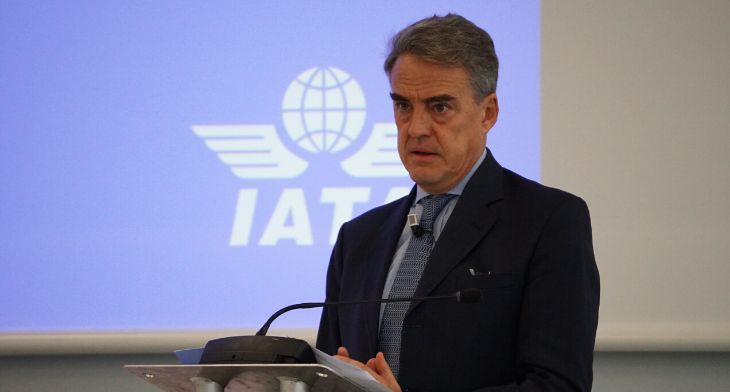
The International Air Transport Association (IATA) has published proposals for a layering of temporary biosecurity measures for re-starting passenger flights amid the COVID-19 crisis.
“There is no single measure that will reduce risk and enable a safe re-start of flying. But layering measures that are globally implemented and mutually recognised by governments can achieve the needed outcome. This is the greatest crisis that aviation has ever faced. A layered approach has worked with safety and with security. It’s the way forward for biosecurity as well,” said Alexandre de Juniac, IATA’s Director General and CEO.
IATA’s Nick Careen, Senior VP Airport, Passenger, Cargo and Security unveiled the roadmap, Biosecurity for Air Transport: A Roadmap for Restarting Aviation, during the organisation’s weekly media briefing on COVID-19.
The recommendations presented are outcome-based, not prescriptive. Careen advised that health screening measures should be introduced as far upstream as possible, to minimise risk of contagion in the airport environment and assure that most passengers arrive at the airport ready to travel. The roadmap recommends that any measures that need to be applied during the travel process should be applied prior to departure rather than on arrival and that measures should only be in place for as long as deemed necessary; all measures should be re-evaluated under a fixed schedule. When more effective and less disruptive measures become available, they should be implemented at the earliest opportunity and defunct measures removed.
In-flight, IATA foresees several layers of protective measures:
- Face coverings required for all passengers and non-surgical masks for crew
- Simplified cabin service and pre-packaged catering to reduce interaction between passengers and crew
- Reduced congregation of passengers in the cabin, for example by prohibiting queues for washrooms.
- Enhanced and more frequent deep cleaning of the cabin
IATA reiterated its opposition to social distancing on board aircraft and quarantine measures on arrival:
- Quarantine measures are obviated by the combination of temperature checks and contract tracing. Temperature screening reduces the risk of symptomatic passengers from traveling, while health declarations and contact tracing after arrival reduce the risk of imported cases developing into local chains of transmission.
- Social distancing on board (leaving the middle seat open) is obviated by the wearing of face coverings by all on board on top of transmission reducing characteristics of the cabin (everybody is front facing, air flow is from ceiling to floor, seats provide a barrier to forward/aft transmission, and air filtration systems that operate to hospital operating theatre standards).
“The Roadmap is the industry’s high-level thinking on safely re-starting aviation. Timing is critical. Governments understand the importance of aviation to the social and economic recovery of their countries and many are planning a phased re-opening of borders in the coming months. We have a short time to reach agreement on the initial standards to support safely reconnecting the world and to firmly establish that global standards are essential to success. This will change as technology and medical science advances. The vital element is coordination. If we don’t take these first steps in a harmonised way, we will spend many painful years recovering ground that should not have been lost,” said de Juniac.





